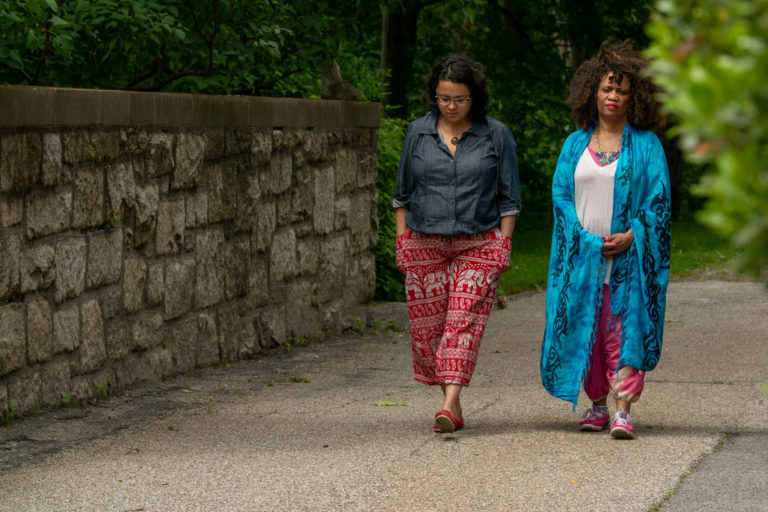“It requires something more than personal experience to gain a philosophy or point of view from any specific event. It is the quality of our response to the event and our capacity to enter into the lives of others that help us to make their lives and experiences our own.”
—Emma Goldman

The relationship between contemplative practice, scholarship, cultural difference, and human diversity became clear to me the first time I stepped barefoot into a meditation center to find I was the only person of color aside from the monks in their saffron robes. As a first generation Mexican-American woman growing up in Texas, the power imbalances I encountered within North American contemplative communities prompted me to step away from practicing and facilitating in community. The ‘othering’ people of color in the U.S. often experience on a daily basis now drives my research at Brown University into the intersection of contemplative science with race/ethnicity, class, and society.
For these reasons, my participation in Mind & Life’s 2018 Summer Research Institute, with its theme of “Engaging Cultural Difference and Human Diversity,” offered a nurturing environment for exploring interests both personal and scholarly.
One session, in particular, stays with me—a guided meditation by contemplative faculty member Larry Yang on the interdependence of nature across space and time. Never before within a contemplative community had I been afforded the chance to delve deeply into the lived history of my ancestors. The setting was the Garrison Institute’s stately meditation hall, where a diverse array of bodies lay bathed in a soft amber light. With Larry as our guide, each of us—the amalgamation of generations of biological, psychological, and social evolution—walked back through the history of the land the Institute now occupies, through our ancestry, and past the brink of recorded history to the edge of eternity, where the building blocks of life as we know it were first formed out of the fiery hearts of stars.
Then, we looked ahead.
Walking into the future, where far less can be known, the expansiveness I felt in my heart contracted. The gratitude I experienced at receiving the wisdom of my ancestors quickly turned to fear of the growing precariousness of our democracy, environment, and shared humanity. Anxiety clenched at my throat; my breath quickened.
Reflecting on that moment, I realize that when hope dims, our best way forward is through what plenary faculty member Marisela Gomez calls the “practice of waking up.” This requires continuous attention to calming the mind. It is stillness that makes way for the internal clarity necessary to take right action toward equitable justice in the service of individual and collective wellbeing. In my own experience, it is this daily practice that refines the quality of my responses to both ordinary and extraordinary situations, increasing my capacity to enter into others’ lives with the intention to define difference as that raw and powerful connection from which our power is forged.* This is not only the practice of waking up, but rather the process of waking up together.
Each day we practice waking up may be like the moments during this year’s Summer Research Institute when we were brought to tears of sorrow, tears of joy, and tears of that which cannot be named. Each day we practice waking up may be like the moments during our final night in community with one another, where cultural diversity and human difference were celebrated in a spontaneous manifestation of shared food, word, song, and dance. Bellies full, hearts full, minds full, souls full. I left Garrison’s lush mountain landscape feeling nourished, heard, and held in a way I have rarely experienced. My sense is that many of us could stand to feel the same.
Every interaction in my personal and professional life now has the potential to become infused with a knowledge from which I must draw my strength to live and my reasons for acting. Every breath is another opportunity to cultivate a clarity and wisdom allowing me to look beyond my own mere survival and bear witness to the life and death of fellow people of color; of democracy; of the earth; of our future—all while holding a space from which to engage in a socially unjust world with love, compassion, and resolve.**
*Audre Lorde, “The Master’s Tools Will Never Dismantle the Master’s House” (1979).
**In Audre Lorde’s “Sister, Outsider,” from Simone de Beauvior’s “The Ethics of Ambiguity” (1947).

